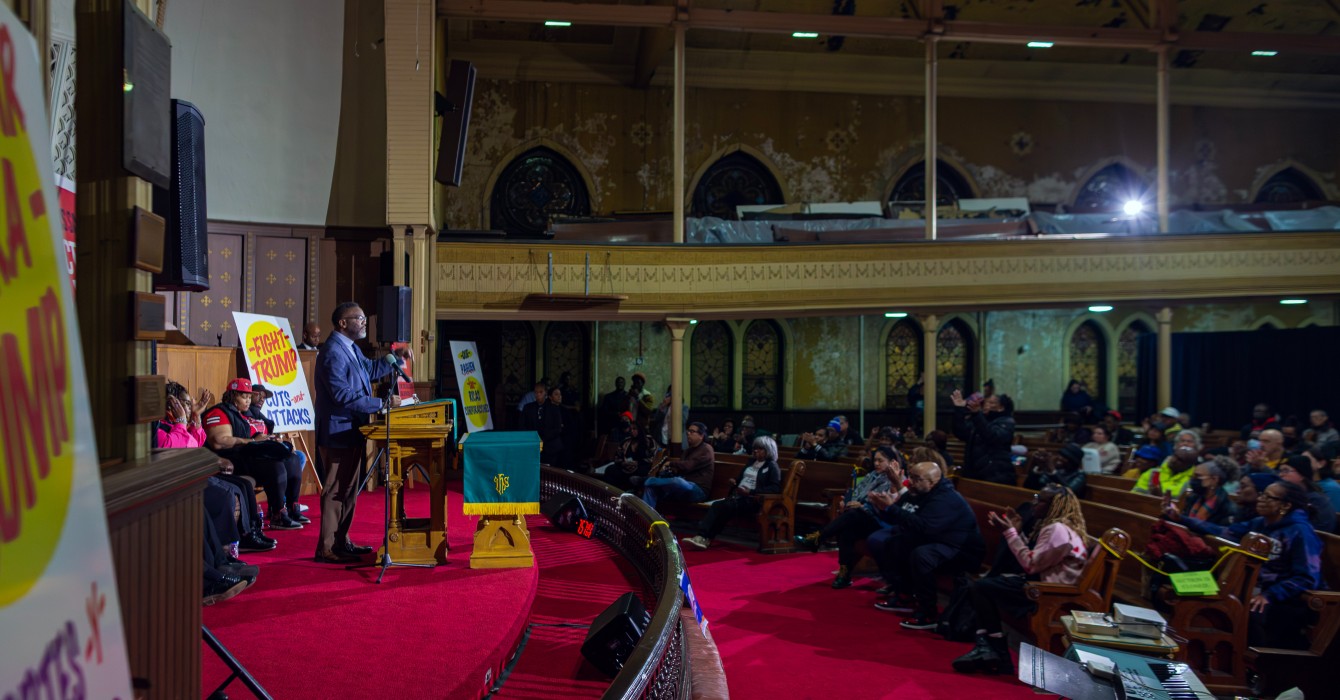Much has been made over American Protestants’ abysmal performance on the Pew Forum’s U.S. Religious Knowledge Survey, and appropriately so. Public discourse and civic engagement suffer when religious adherents are uninformed of the most basic tenets of their neighbors’ faiths.
But what about our congregations’ widespread illiteracy in the grammar of the Christian faith? It’s a problem that prompted "Christianity Today" to run a cover story earlier this year on biblical illiteracy entitled “Why Johnny Can’t Read the Bible.” Things might officially be dire when even evangelicals are forced to admit that they have little more than a passing familiarity with Scripture.
Taken together with reports of the enervating effects of the Internet on our attention spans, these stories seem to spell doom and gloom for the possibility of renewed attention to Scripture and tradition. Millennials like myself have grown accustomed to the wagging fingers of boomers and Gen X-ers who remind us (often with a trace of relish) that our generation is intellectually out to lunch. Moralistic, therapeutic deists that we are, it’s hard to argue.
But it’s easy to lose sight of some countervailing trends. A flourishing theology blogosphere and record attendance at a theological dialogue with N.T. Wright earlier this year suggest a more complicated picture than rumors that we are approaching the Dark Ages. Exchanges on theology blogs can be just as maddeningly insular as certain panels at professional academic conferences, but they are signs of a pulse, however faint. Even the recent furor over a popular trade biography on Dietrich Bonhoeffer could be auspicious in that the academy and the wider public are interacting at all.
Even more encouraging are local church initiatives like the Newbigin Fellowship. Named for the late Scottish bishop and missionary, the fellowship is a program of City Church, a vibrant Reformed Church of America (RCA) congregation of mostly young, well-educated professionals in the Lower Pacific Heights neighborhood of San Francisco.
The Newbigin Fellowship was conceived by two of City Church’s pastors to equip members with biblical and theological tools that would help them pursue their vocations in business, education, and art, as Christians. The tuition-based program’s objective is mission, rather than indulging the idle intellectual curiosities of those with extra time and money. It’s not simply a small group for the smart kids. Fellows are expected to have at least two years of experience in the workforce and to commit nine months to an intensive schedule of reading (mostly theology, including the works of the fellowship’s namesake), seminars and spiritual formation retreats. In addition to the two pastors who act as resident faculty, the colloquium hears from the likes of James K.A. Smith, Tyler Wigg-Stevenson, and Ellen Charry on topics such as vocation, cultural engagement and the biblical narrative.
The spirit of the Newbigin Fellowship isn’t sequestered from the rest of the church’s life. Worshipping at City Church recently was enthralling. The service is a seamless blend of contemporary and liturgical sensibilities. The Eucharist is celebrated weekly. The pastors and lay worship leaders took care to explain the theological significance of each stage of the service, without the ham-fisted pandering of some seeker-sensitive overtures. I left with an understanding that theirs was a congregation fully possessed of its Reformed heritage in the best sense possible -- appreciative of its past while generously catholic and outwardly engaged. Who knew such a delicate balance was possible in San Francisco?
Though City Church’s homegrown seminary wouldn’t be feasible in every context, it’s nonetheless a glimpse of what could be elsewhere. As divinity school finances continue to be tenuous, increasing responsibility may fall upon church leaders to find flexible, creative ways to educate laity in their mother tongue, the language of the Christian faith.
Lesslie Newbigin saw the importance of Trinitarian faith for understanding reality, calling it a “new way of making sense of the world” that offers the “possibility of a practical wisdom to grasp and deal with human life as it really is.” Congregations like City Church are embracing this challenge of articulating afresh, in a shallow culture, how theology matters for everyday life, and how it can be pressed into the service of God’s mission in the world. And that’s something to cheer about.











